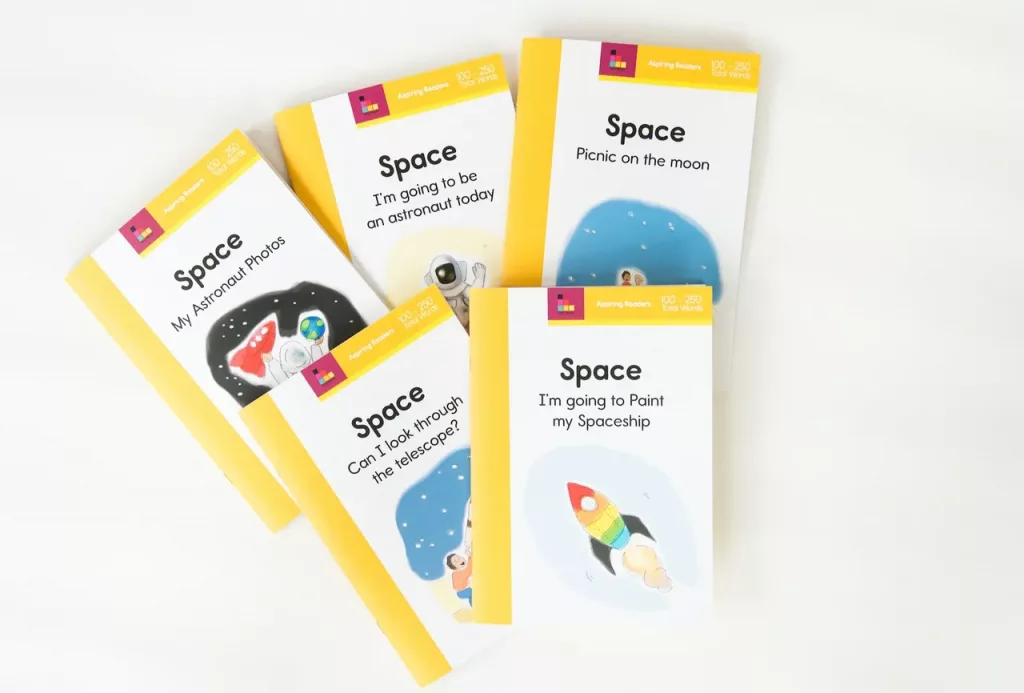25 July 2021|Brand Story, Latest Posts, Launching a business

Reading is crucial to a child’s development – yet one in nine kids in the UK don’t own a book. That’s where Total Words comes in. The new educational company has launched a digital library of books and learning resources specifically designed to encourage children to read more.
Educational psychologist Allyson Caseley and artist-designer Kiri Mellalieu launched the tech start-up in a bid to address the literacy crisis in Britain, and help the 200,000 children in the UK who still can’t read by secondary school age.[1]
Total Words combine’s Allyson’s expertise at creating success-friendly learning systems, and Kiri’s artistic flair for converting text on a page into colour books and learning activities specifically designed for learning.
Together, the combination of knowledge and skill has sustained the company through years of product development.
Allyson says: “Total Words is about converting possibilities into action; the possibilities of a different way of doing learning, a fresh approach for learning to read converted into a range of reading books and learning activities that value knowledge, thinking, success, motivation and self-confidence.”

So what makes Total Words different?
Allyson explains: “The current teaching of reading practices in schools are effective for nearly 75 per cent of children. But for the remainder, learning to read can be a slow, frustrating, even emotionally harrowing experience. It was seeing the reality of children’s poorly developed reading skills day after day that was the motivation for Total Words.”
“What do successful readers do that struggling readers do not do? The answer is simple. They read more words each day and they read more words correctly,” says Allyson.
“So-called ‘struggling readers’ read fewer words, sometimes as few as 10 or 20 words in a whole day. Struggling readers read words incorrectly; they seldom, sometimes never, read a sentence fluently, and so they never experience the flow of looking at and saying words to feel connection to the meaning of printed text.”
Allyson and Kiri created Total Words to bring a fresh, forward-driven, positive process of learning to readers.
By taking this new approach to the effective teaching of reading, the potential for an entrepreneurial education business opened up. Schools could move away from the slow, individual-child focused attention and instead concentrate on the struggling readers.
Kiri says: “We were excited by successes with the method of teaching reading, but resources in schools varied in quality and accessibility.
“Things changed when we were asked to produce a series of weekly reading journals for a school in London. Children could read small articles about topics they were studying in class.
“We provided word counts and the kids could add up the number of words they had read – that was the key to personal motivation. They could tell us about their achievements. Learning was self-driven.”
“We realised that we needed to make our own reading resources, each book written to a specific number of words, each book with a balance of easy words and topic words.
“This simple word count feature makes Total Words books more than reading books. They are personal motivators and precise measures of day-to-day progress. Reading improves through practice, and by knowing the number of words read each day, we can know how many words child needs to read in order to make progress.”
But like most new businesses it was not without challenge – particularly when the global pandemic struck.

Allyson says: “Covid changed schools. Technology became the medium for learning. Access to resources became a most valued commodity. Access to resources meant access to learning at home, at school, with parents, grandparents, teachers.
“We had to adjust and so we looked at digital formats. Our books, small and concise, are ideally suited to screen-friendly reading. We converted the existing library to a digital format. The books then became accessible to parents, schools in the UK and internationally.
“Then we looked further into the way that technology can support learning. We developed a prototype app that lets children and teachers input the number of words read each day, the number read correctly, and over successive days, can calculate the increase in word accuracy, speed and quantity of words read. The fresh approach to reading felt as if it had arrived, ready for the 21stcentury education system.”
Another challenge has been getting the word out about what the brand is doing.
Kiri says: “Marketing has been our biggest and ongoing challenge. The problem is not just ours. Last week at The Future of Innovation in Learning and Teaching in School 2021 conference, entrepreneurs spoke of the challenge of getting new products and innovations into schools.
“The advice was to make sure products were cost-effective, could help schools in the management of their resources and could provide clear evidence of the effectiveness in learning. Total Words ticks all those boxes.
“Our most effective marketing to date has been through informative emails to schools but we are now raising our social media profile.
“We are not just marketing our books, but a system of delivering learning that creates children as self-motivated learners, who can think for themselves, talk about topics and share their personal achievements.”
So what’s next for the brand?
Kiri explains: “Our next initiative is to sell Total Words products by yearly subscription. We see this as not only as a way of gaining greater predictability in the income but also as a way of securing much more secure relationships between the company and its clients.
“Our business is one that can adapt very quickly to market demands because all the expertise required to produce our books and activities is in-house, and so we can respond to market needs very quickly.”
Total Words represents a fresh, innovative approach to education, harnessing the interaction of technology and human motivation for learning.
As Allyson says: “We can foresee significant changes, enhanced by resources that are designed for an effective learning process.
“The value of information-gathering that allows schools to forward-plan for effective teaching and resource use, the motivating value of daily measures of skill progress, the value of shared language for progress, demystifying learning as an individual ‘ability’ and repositioning learning as a shared responsibility of access to effective learning opportunities all lead to entrepreneurial opportunities, working with stakeholders in the massive global education market.”
You can access the digital library and learning resources and buy books from Totalwords.com.
References
[1] https://www.thetimes.co.uk/article/boris-johnson-fears-lockdown-illiteracy-surge-7ghpwgf3w
- lisafoundersitehttps://thesuccessfulfounder.com/author/lisafoundersite/
- lisafoundersitehttps://thesuccessfulfounder.com/author/lisafoundersite/
- lisafoundersitehttps://thesuccessfulfounder.com/author/lisafoundersite/
- lisafoundersitehttps://thesuccessfulfounder.com/author/lisafoundersite/






